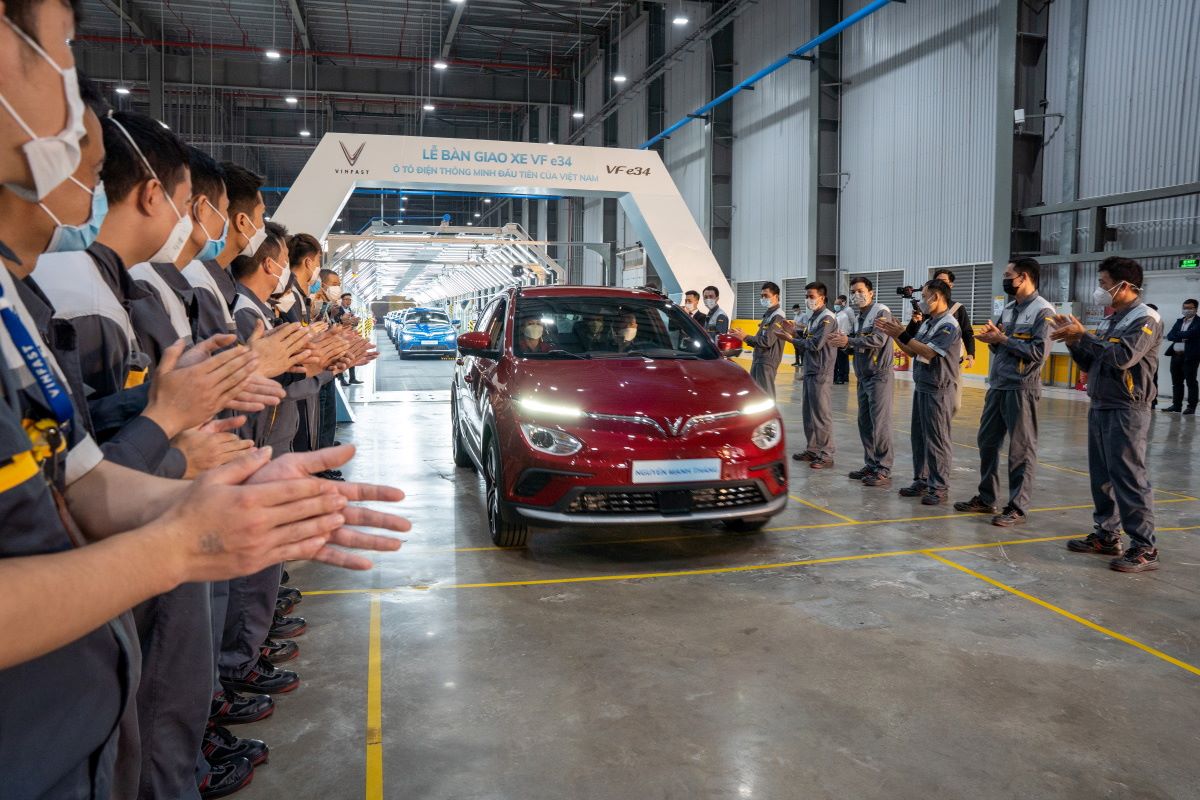VinFast’s IPO on the Nasdaq on August 15 (Nasdaq: VFS and VFSWW) witnessed a remarkable inaugural performance. The electric vehicle manufacturing company’s shares surged by a staggering 270% on the first trading day, only to experience a sharp decline consequently.
With its legal and financial base stationed in Singapore and operational headquarters in Vietnam, the corporation, which functions as a division of the VinGroup conglomerate, was established in 2017. Primarily focused on the production of electric vehicles, the company’s scope extends to the design of automobiles, e-scooters, eco-friendly buses, batteries, and charging stations. Furthermore, the company oversees automated manufacturing plants dedicated to crafting electric vehicles equipped with autonomous driving features.
On its US stock market debut, the company’s IPO, valued at $23 bn, initially opened at a share price of $22, twice the agreed-upon value with its SPAC partner, Black Spade Acquisition, and rose to the peak pricing of $37. This surge quickly propelled VinFast’s market valuation to an impressive $85 bn, surpassing the market caps of established giants like Ford and General Motors.
Madame Thuy Le, Global CEO of VinFast Auto, stated on the day of the company’s IPO debut, “Today’s successful listing not only supports VinFast’s commitment to sustainable mobility at a global scale but also unlocks access to the capital markets and important avenues for future development.”
However, since the opening day, the EV maker’s stock has dropped by around 45%. But even at the lower valuation, VinFast indicated it had the biggest market capitalisation of any Vietnamese company trading in the U.S.
Concurrently, Pham Nhat Vuong, the billionaire founder and owner of VinFast with a 99% stake, observed his net worth diminish by 52%, settling at $26.2 bn within the first three days following the company’s IPO debut.
VinFast IPO’s fate hangs in balance amid US woes
VinFast’s IPO performance is clouded by worries about the company facing challenges since its entry into the US market. While enjoying a strong reputation and popularity in Vietnam, the company has encountered issues related to its electric SUV models, particularly the VF 8 in the US.
Criticism for the VF 8 escalated after US journalists conducted test drives, leading to scathing reviews in various industry publications, deeming it “unacceptable.” In response, VinFast has announced plans to implement software improvements based on feedback from both vehicle owners and automotive critics.
However, for now, reservations for Vinfast’s VF 8 and VF 9 models have significantly shrunk from 58,000 as of September 30, 2022, to 20,000 by June 30, 2023, as per the company’s SEC filings.
Furthermore, after experiencing rapid EV revenue growth of 109.6% in 2021 and 399.4% in 2022 due to e-car sales, VinFast’s EV revenue expansion slowed to 105.2% year-on-year in the first three months of 2023. Moreover, customer deposits as a percentage of total revenue sharply declined from 77.4% in 2022 to 17.9% in the first three months of 2023, indicating diminishing customer interest.
Adding to these challenges, Arun George, a Global TMT analyst and Co-founder of Global Equity Research, highlighted on SmartKarma that VinFast lacks a credible track record in achieving sustainable profitability by elucidating on the company’s high cash burn rate and stretched balance sheet.
In summary, George noted, “VinFast faces headwinds of poor reviews, declining customer traction, ongoing losses, and cash burn. VinFast is trading at a material premium to peers on growth-adjusted multiples.” As VinFast navigates these hurdles, its future trajectory will be closely watched in the ever-evolving landscape of the electric vehicle market.


 Australia
Australia China
China India
India Indonesia
Indonesia Japan
Japan Malaysia
Malaysia Philippines
Philippines Singapore
Singapore South Korea
South Korea Taiwan
Taiwan Thailand
Thailand Vietnam
Vietnam







